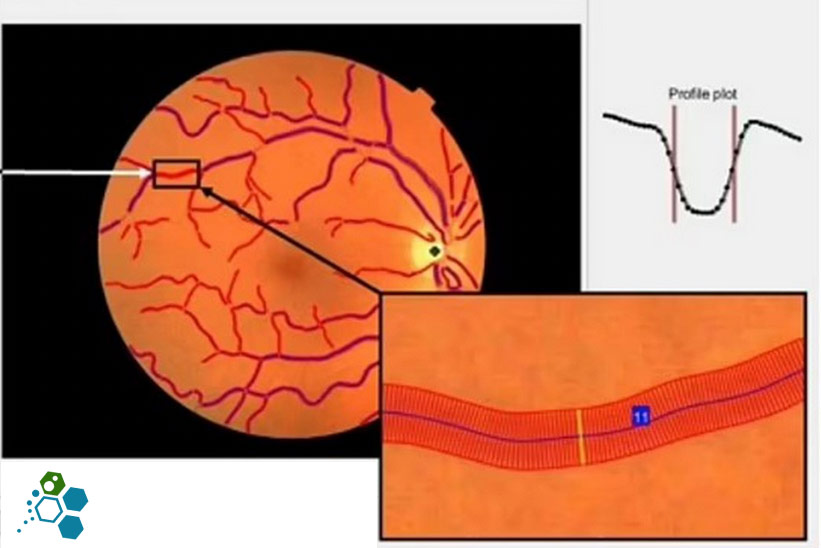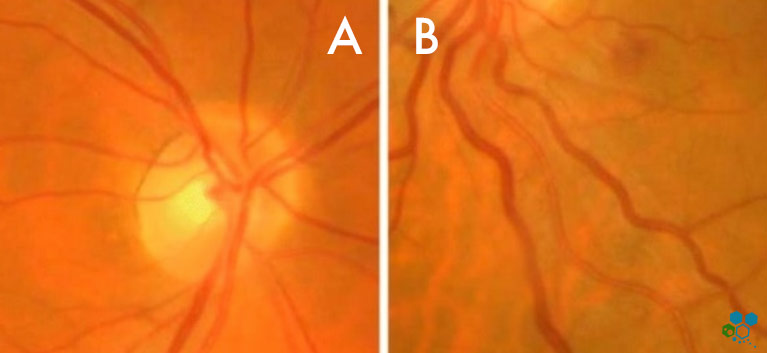Researchers have developed an new AI powered eye exam that can determine the likelihood of that person developing heart disease in under a minute. The discovery paves the way for a very accurate test, that does not require any intrusive procedures, and does not even require a visit to the doctors office.
By scanning a person’s eyes with an artificial intelligence tool from an App on a cell phone doctors can will be able to precisely determine a person’s risk of developing heart disease in the future. After some of the most extensive research ever conducted, the innovative new test may make it possible for ophthalmologists and other general physicians to conduct cardiovascular screening using a simple camera. This non-invasive method would eliminate the requirement for blood tests, stress tests or blood pressure exams.
The AI algorithm uses imaging of the veins and arteries in the retina to define a persons risk of getting cardiovascular disease, cardiovascular mortality,heart attacks or brain injuries. Using this advanced technique, a patients’s degree of risk can be determined in less than one minute. If that patients risk was deemed higher than predicted, they could be start treatment options using statins or other kind of regenerative interventions and promote angiogenesis. This early intervention tool can quickly gauge a persons cardiovascular health thereby saving countless lives.
Identifying Circulatory system diseases
Diseases of the heart and circulatory system are among the leading causes of illness and mortality in the world. These conditions include cardiovascular disease, coronary heart disease, congestive heart failure, COPD, IPF and other vascular diseases. Cardiovascular disease is one of the leading cause of death in the world, and is estimated to be responsible for 1 in 4 fatalities per year.

The test is perfect yet however. For some “high risk” patients the indicated risk, isnt always able to accurately identify those who will go on to develop heart disease later in life. Another automated artificial intelligence-enabled device called “Quartz” in being developed by researchers to evaluate the potential of retinal vasculature imaging, in conjunction with known risk factors, to better forecast vascular health and mortality rates.
The improved model was trained on data from patients from age 35 to 70 years old. When developing medical prediction models for stroke, heart disease, and mortality from circulatory disease, researchers look to measure the architecture of the arteries and veins in the retina, the area of the vessels and the degree to which they were curved. After the initial scan, they researchers used the AI models to analyze the retinal pictures of of over 9,500 patients who participated in the research. The participants’ assigned risk was compared to established cardiovascular risk prediction models.
The overall health of each participant was monitored for a period of five to seven years, on average. Once the trial was over researchers discovered that the breadth, curviness, and width variation of veins and arteries in the retina were strong predictors of mortality from cardiovascular illness. This was the case, particularly in men, and variations in artery area and breadth and vein curviness and width contributed to risk prediction in females. The artificial intelligence model also used the individuals’ medical history data, including smoking history, medications used to manage high blood pressure, and prior comorbidities.

The findings have been astounding and the retina data was found to be strongly related to increased risk of cardiovascular illness and strokes and that it had a prediction ability comparable to that of the established clinical risk score such as HEART
Benefits of using AI for Medical Screening
AI-enabled vasculometry risk prediction models are entirely automated, very low-cost, and non-invasive. The new discovery has the potential to reach a more significant proportion of the people in the world because it is available to be downloaded on the internet and does not require blood samples or blood pressure measurements.
The findings lend credence to the results of numerous other research that found the retina to be an informative and possibly game-changing source of data on cardiovascular disease risk in the context of personalized functional medical treatments.

